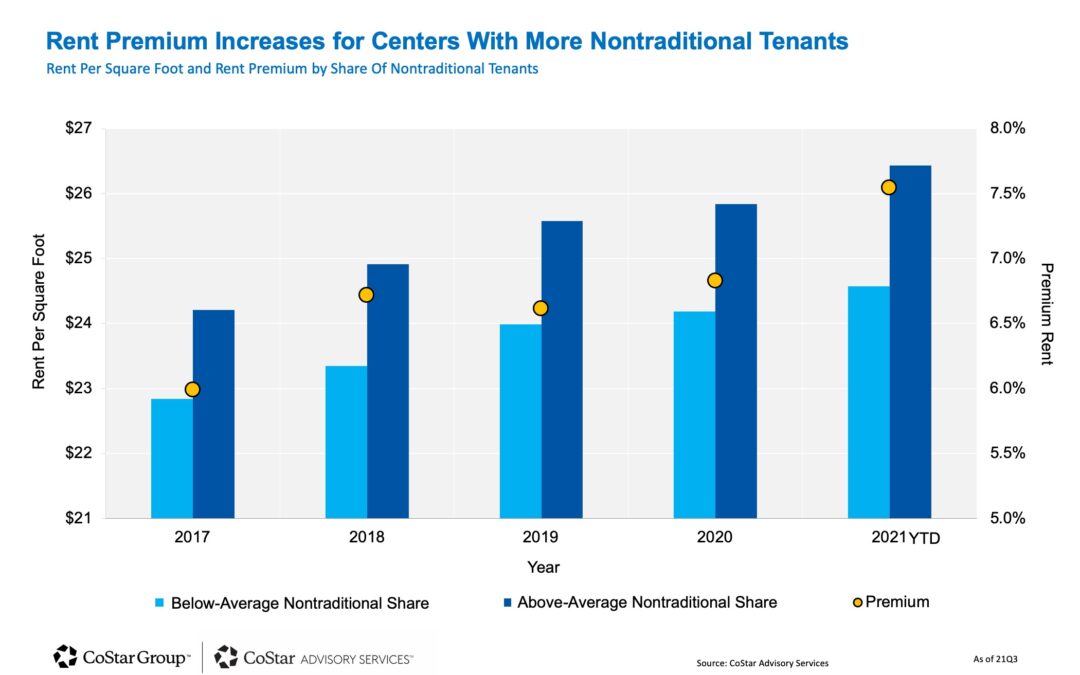Retail landlords with tenants such as restaurants, gyms and grocery stores will be more likely to secure even bigger premiums when it comes to rent increases next year, according to a CoStar analysis.
Nontraditional retail tenants, be it those that offer experiences such as eateries and fitness centers, or provide necessities that people can’t do without, including grocery and discount stores, are inherently resistant to competition from e-commerce. So mall and shopping center owners who have a relatively large amount of space leased to such occupants have had more stable foot traffic and sales. That’s helped them increase rents at their properties.
And while many so-called experiential retailers weren’t immune from the disruptions of the pandemic, the boost they still managed to give to landlords will permit owners to seek rent premiums again in 2022, according to CoStar.
With the closings of a large number of department stores , nontraditional tenants have been fueling leasing activity in the retail sector in general.
So the outlook for landlords blessed with a large stable of nontraditional tenants, or those that have built strong omnichannel platforms that can compete with e-commerce, is rosy. Those retail properties should continue to outperform the overall sector in the year ahead.
Author Credit: CoStar

